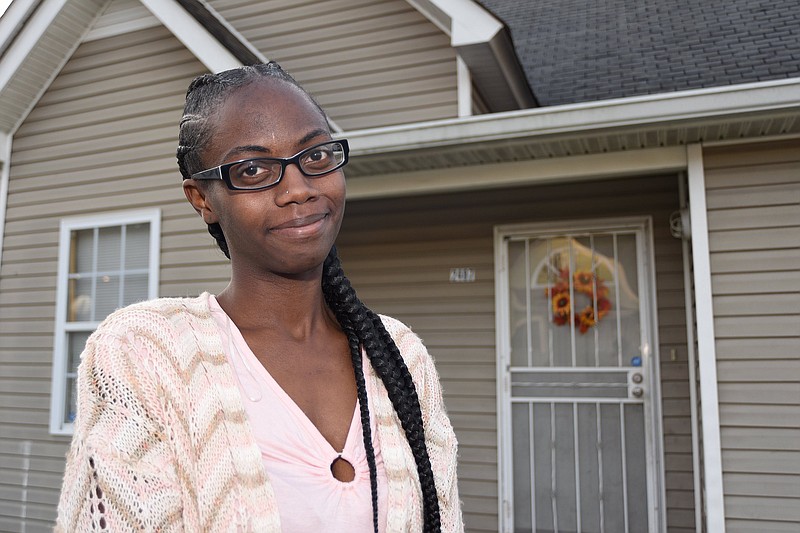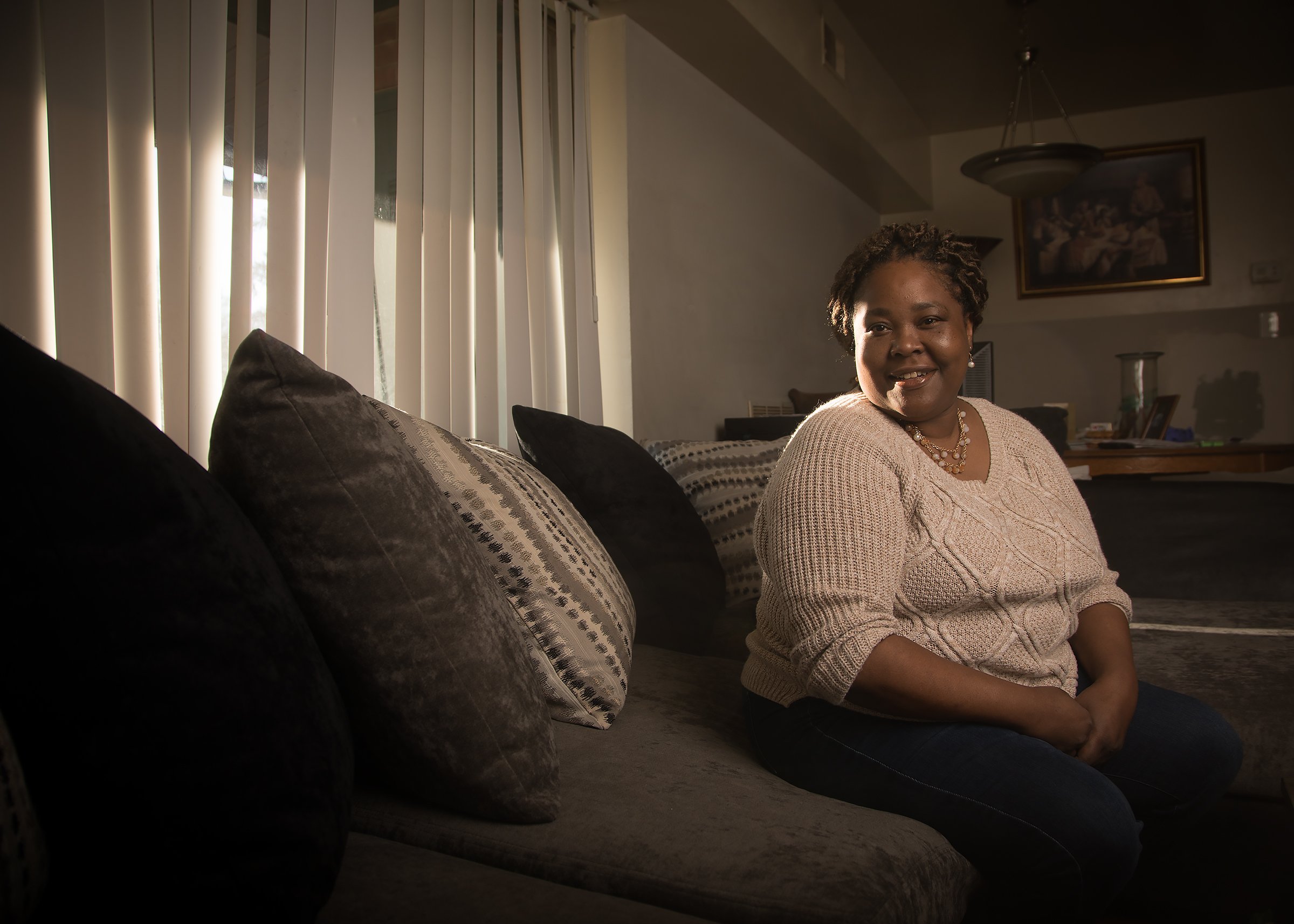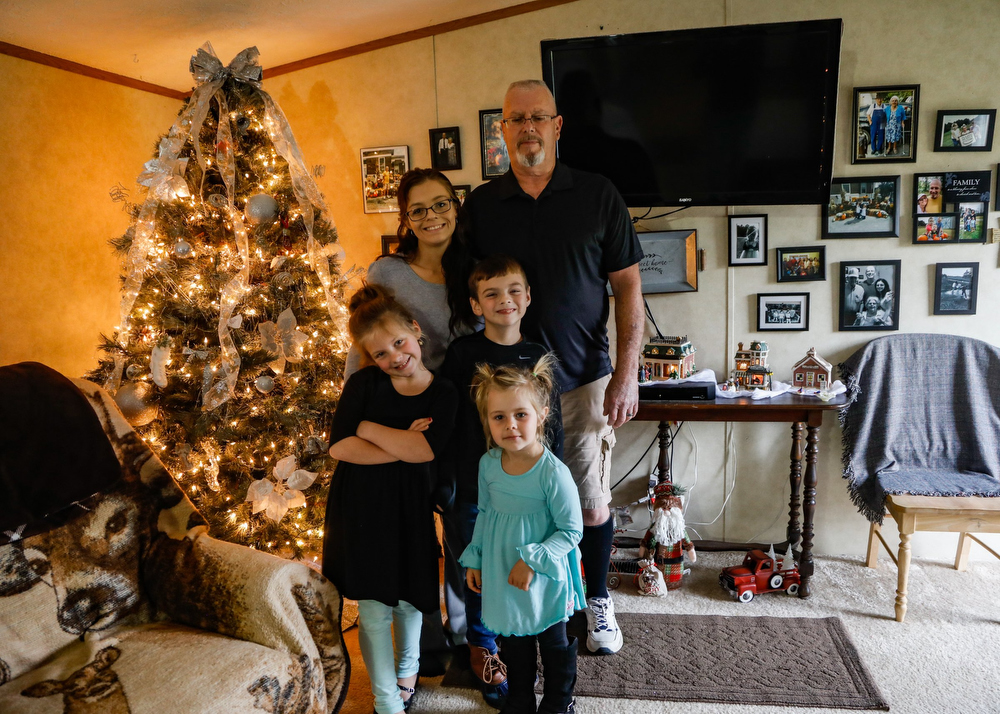We all need help sometimes. Especially when life throws us a curve ball.
As journalists, we see it a lot - those life-wrecking curve balls - like fires, auto accidents, tornadoes, floods, COVID-19, and other family tragedies.
But we also see people's profound goodness and empathy. We see our community's strength when our neighbors are confronted with adversity.
That's why, as a newspaper, we've continued for more than a century to sponsor the Neediest Cases Fund. It is our way of helping ordinary people in our region who fall on hard times.
Ordinary people like Jasmine Fuller who lost both her fiance and their Wilcox Boulevard rental home when the same storms that brought us Easter tornadoes threw a tree into their bedroom, killing her fiance instantly as Fuller slept beside him.
Fuller already had lost her receptionist job near the start of the COVID-19 pandemic, and her fiance's job for J.B. Hunt Transport Services had been paying the bills for them and their three children. Suddenly a single mom with no home and no job, she received help to get back to work and back on track, in part, from the Neediest Cases fund.
Chattanooga resident Stephanie Carson also lost her rental home and everything she had in an electrical fire last November.
The local chapter of the American Red Cross paid for a hotel room where Carson could stay for a week and also gave her a voucher for furniture - although she had nowhere to put it - and a voucher for food. But without any identification, she couldn't redeem either voucher. She also had no money for a deposit on a new place. Carson was homeless until February, usually sleeping in her car or in a park. When she called 211 for assistance from the local United Way, she was referred to Family Promise of Greater Chattanooga, a nonprofit organization that helps low-income families become independent. Through the Neediest Cases Fund, her caseworker was able to provide Carson with $500 to cover a deposit on a new place to live.
Gary and Ashley Grant of Evensville, Tennessee, in Rhea County suddenly found themselves with no income after Gary, a mechanical operator at a business in Dayton, had emergency triple bypass surgery for three blockages in his heart. To care for him, Ashley was forced to take an extended leave of absence from her work in an Athens nursing home, and with COVID-19 raging in the nursing home, Ashley was taken off the payroll altogether. With three young kids at home, monthly bills started to pile up. But Rhea County United Way officials are trying to help with assistance from the Neediest Cases Fund and community aid.
Amputee Victoria Beard, after suffering a fall and being admitted to the hospital and rehab, was unable to meet her rent and repair bills, so she reached out to United Way and received a $281 donation to help her catch up, get food and receive a donated lift chair.
Each year, the Neediest Cases Fund helps hundreds of local people and families. Sometimes it's folks like the veteran with a wife and two special-needs children who was facing what seemed like an insurmountable hurdle to pay for a $3,300 car repair while the dad juggled work and other bills. In 2016, we saw 40 Rhea County workers who lost their jobs when Fuji Film and Goodman Manufacturing began planning to close up shop in 2017. They received help paying their utility bills and rent.
All of this is thanks to you. Not us. You, readers, helped your neighbors. All we did, really, was tell you about them, and you did the rest.
The idea for the Neediest Cases Fund was born on Christmas Day 1911 in New York, when Adolph S. Ochs, then-publisher of The New York Times and of The Chattanooga Times, went out for a walk after a big turkey dinner. On the walk, he encountered a shabbily dressed man on the street who told him he had just been given Christmas dinner at a Y.M.C.A. but had nowhere to sleep.
Ochs looked him over, so the story goes, decided he looked respectable and gave him a few dollars and his card.
(Donate to the Neediest Cases Fund here)
Other Ways to Donate
Note: Under the CARES Act, taxpayers who don't itemize deductions may take a deduction of up to $300 for cash contributions made in 2020 to charitable organizations.Send the following information and a check to United Way of Greater Chattanooga. Please note that the donation is for Neediest Cases and mail to United Way, 630 Market St., Chattanooga, TN 37402. Enclosed is a donation for $ Name: Address: City: State/Zip: Donor Acknowledgement options: In honor of: In memory of:All donations will be acknowledged by mail and in the newspaper. Please state if you do not want us to publish a name in the list of contributors. Donations will be accepted through Dec. 31.
"If you're looking for a job," he said, "come see me tomorrow."
The encounter made Ochs feel good, and he began thinking about charity and wondering if one man's feeling might be the basis for a city's goodwill, according to an online history of the New York fund - the forerunner of the Chattanooga Neediest Cases Fund.
The following holiday season, Ochs decided to publish articles about the Hundred Neediest Cases in New York, and make an appeal for help not with a direct request for money, but with the facts of those neediest lives. That first year, the campaign lasted nine days and collected $3,630.88 (about $93,100 in today's dollars) from 117 contributors. This year it continues in New York for its 109th year and has raised more than $300 million.
Here, at home, the Chattanooga Times' Neediest Cases fund was launched in 1914.
The Times - and later the Times Free Press - have been raising money for this fund for the 106 years since, running stories twice a week from Thanksgiving until the end of December about local people struggling to overcome a tough patch in their lives.
Your donations (and ours) are collected online through the United Way. Contributions are acknowledged in the newspaper, and are accepted through Dec. 31.
We thank you. And your neighbors thank you.
Read more stories about 2020 fund recipients at timesfreepress.com/neediest-cases.


